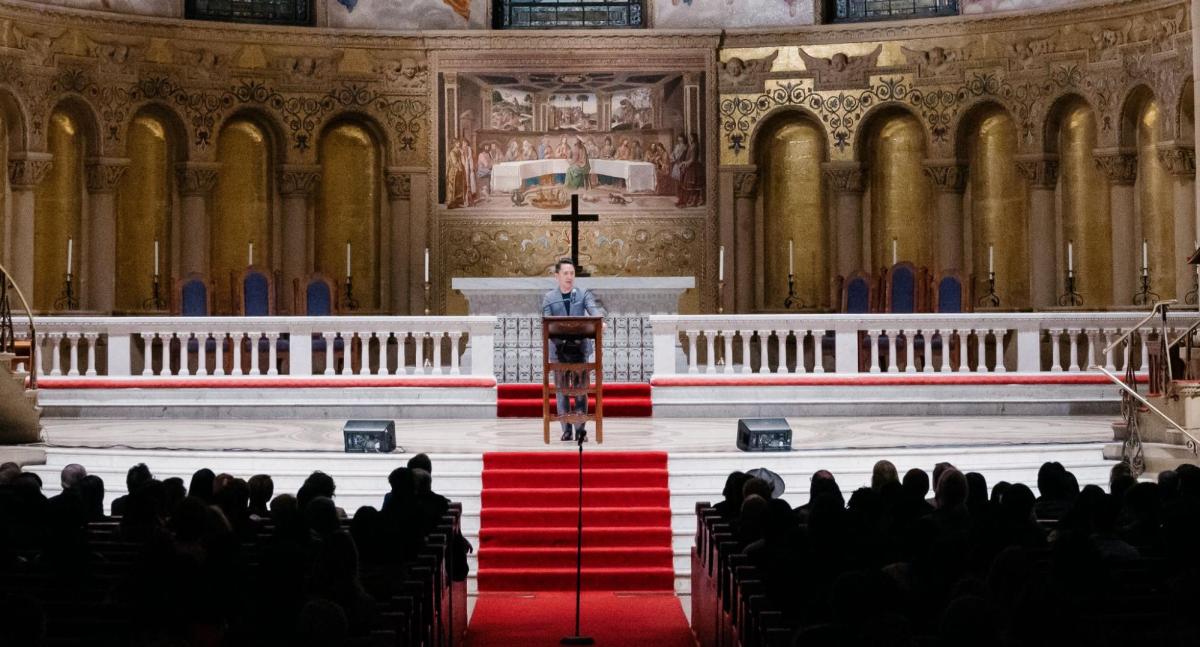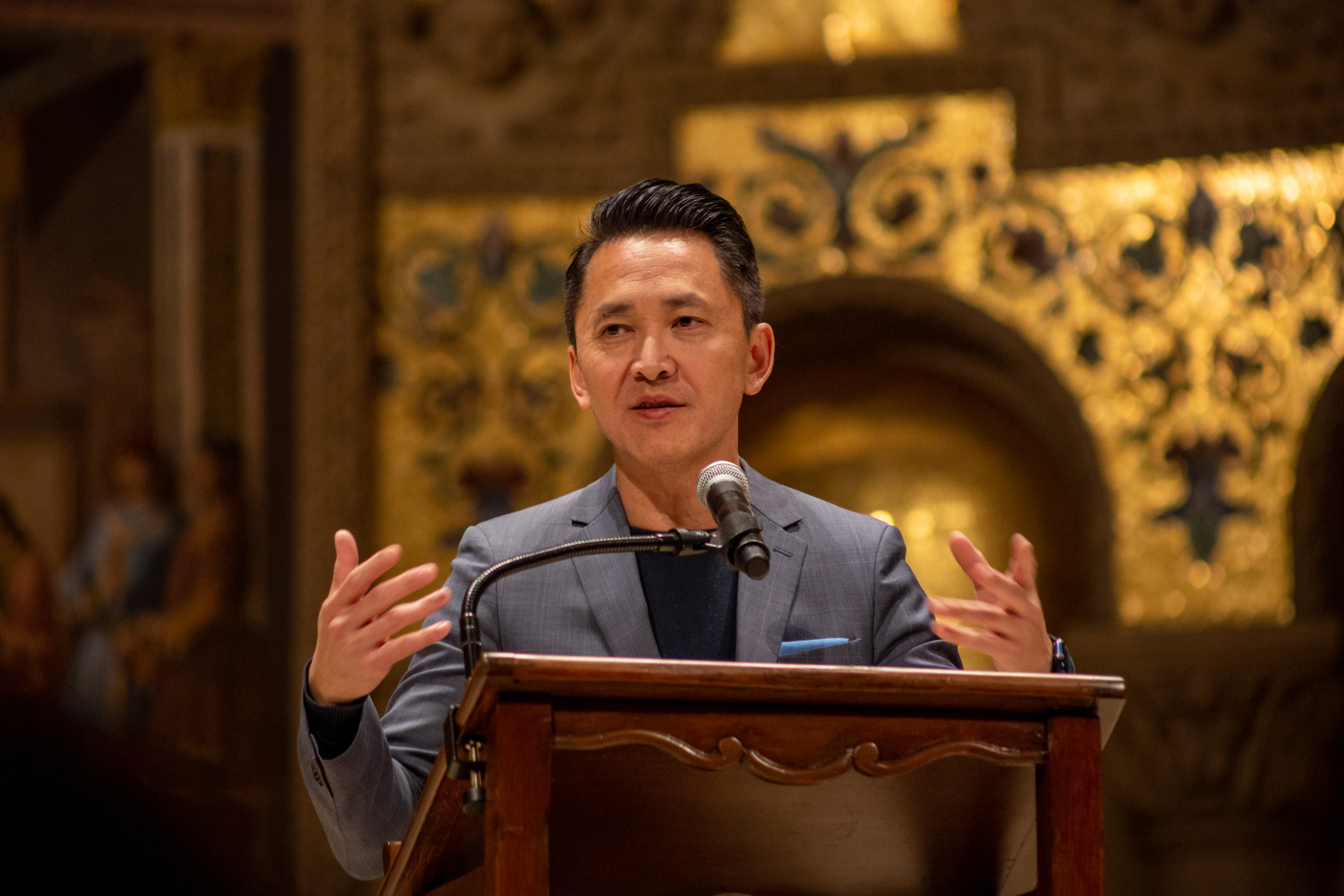On Wednesday night, Stanford’s Center for Comparative Studies in Race & Ethnicity (CCSRE) presented the 18th Annual Anne and Loren Kieve Distinguished Lecture, “Speaking for an Other,” delivered by writer Viet Thanh Nguyen. Nguyen’s works include “The Committed,” “The Refugees” and the Pulitzer Prize-winning “The Sympathizer.”
Prior to the lecture, Nguyen also visited the Asian American Activities Center (A3C) for an intimate conversation with students, discussing his experiences with writing “The Sympathizer,” which will be made into a TV miniseries on HBO in collaboration with A24.
Inside the warmly lit Memorial Church, Nguyen was welcomed by Executive Director of CCSRE of David Kim and Faculty Director of CCSRE Paula Moya. Nguyen began his talk by discussing his upbringing in San Jose. It was there that his parents owned a grocery store named Sàigòn Mới, or “New Saigon,” an homage to the old capital of the former South Vietnamese regime.
Nguyen offers an in-depth account of his life experiences in the Bay in his 2009 short story “War Years,” one of his most autobiographical works. “I titled the story ‘War Years’ because I couldn’t separate that era of the grocery store from the shadows of the American War in Vietnam,” he revealed.
Growing up, Nguyen’s parents worked 14-hour days every week. As a result, from an early age he spent most of his time in the San Jose Public Library, which felt more like home to him than his own house.
“Inside the library is a world without borders for a refugee boy who had not chosen — unlike his parents — to cross borders,” Nguyen reflected. “Books could deliver me across time and space, away from the house with its barred windows, away from Sàigòn Mới.”
However, at the library, Nguyen recognized how books that were about Vietnam were mainly about the war and mostly through the eyes of an American.
His discovery of Asian American literature later on as a college student is what “saved” him. “It showed me that a writer could look like me, and that I could look like a writer,” he explained. Feeling like an “other” to many, even to himself, he found a voice in literature to assert himself and his identity.
While Nguyen’s family’s refugee background has been inseparable from his writing, he found that he had a keen interest in British literature. In the San Jose Public Library, he was “crawling all the way inside the voices of so many white writers,” including Dickens and Austen.
“One lesson I learned intuitively was that all those white writers that I read and admire didn’t need and shouldn’t have to worry about whether a young Vietnamese refugee boy was ever going to read [their work],” Nguyen told the audience, “That’s not their obligation.”
As an Asian American and Vietnamese refugee writer, Nguyen similarly puts pen to paper without pausing to ask if non-Vietnamese people would read his work. “My obligation is to speak as if everyone could already understand what I say,” Nguyen said. “That’s an assumption persons of the so-called ‘majority’ make all the time, an assumption born from the privilege of being the beneficiary of imperialism, colonialism, racism and patriarchy.”

“The Sympathizer” received countless rejections when Nguyen attempted to get the book published, according to Nguyen. Only on the 13th out of 14 tries did Nguyen get the green light. The book is narrated from the perspective of a communist spy during the Vietnam War but also follows the lives of Vietnamese refugees who arrive in America.
However, Vietnam’s current government was not receptive to the book, claiming that it was not an accurate or truthful representation of the events. The book was also not fully embraced by Vietnamese Americans who are hostile towards communism. As a novelist, Nguyen said he writes as if only in conversation with himself, untroubled by outside judgements, while others are merely listening in on him.
Nguyen encouraged minority writers to write without translation, and he warned that those who read should not demand translation from the writer. This rejection of translation is crucial to denying the “otherness” that is imposed on minorities. “Translation is a deformation of a voice, the sign that so-called ‘minority’ accept their subjugated stance,” he claimed.
